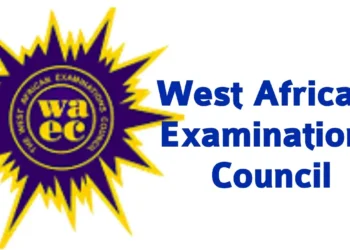
Education Minister Mr. Tunji Alausa has raised concerns about Nigeria’s foreign scholarship program. He revealed that 85% of students sent abroad on government scholarships do not return to help develop the country.
Speaking at a one-day meeting in Lagos with education leaders, Alausa said the government is changing how it funds schools to make better use of public money.
“Many of the courses these students study abroad can be handled by our local universities,” he said.
Focus Shifting to Local Education
To fix the issue, Alausa announced a new focus on building up Nigeria’s own institutions. The government has created 28 Centres of Excellence in both public and private schools. These centres will offer advanced programs, support research, and help create jobs.
New Rules for TETFund Support
Alausa also announced that schools with fewer than 2,000 students will no longer receive funding from the Tertiary Education Trust Fund (TETFund).
“Some polytechnics, even those set up in 2019, still have fewer than 550 students,” he explained. “But they get the same funds as schools with over 18,000 students. That’s not fair or efficient.”
Under the new policy, any school that has been open for five years and still hasn’t grown to 2,000 students may lose TETFund support until they improve.
The meeting also covered plans for the 2024/2025 TETFund guidelines. Alausa said the goal is to be more transparent and get better results from every naira spent. This change follows a directive from President Bola Ahmed Tinubu.
Satellite Campuses Called “Unsustainable”
Alausa also spoke out against the rising number of satellite campuses. He called them “unsustainable and counterproductive.”
TETFund’s Executive Secretary, Sonny Echono, agreed. He said the agency is moving toward a funding model based on performance. Schools that perform well will get support. Those that don’t, won’t.
“We want schools to rely less on government and work with private partners, especially for things like hostels and innovation centers,” Echono said.
He also warned that schools that fail to grow, misuse funds, or don’t meet academic standards may be removed from the TETFund list.
“This isn’t to punish schools,” he said. “It’s to protect the reputation and results of the Fund.”
Echono ended by urging school leaders to commit to better planning, honesty, and results.
“This meeting is a chance to improve how we lead, manage projects, and stay accountable,” he concluded.



![Viral House Party Video Sparks Conversation on Changing Social Norms Among Nigerian Mothers [Watch Video]](https://kumornews.com/wp-content/uploads/2026/02/Viral-House-Party-Video-Sparks-Conversation-on-Changing-Social-Norms-Among-Nigerian-Mothers-Watch-Video-1-360x180.jpg)














